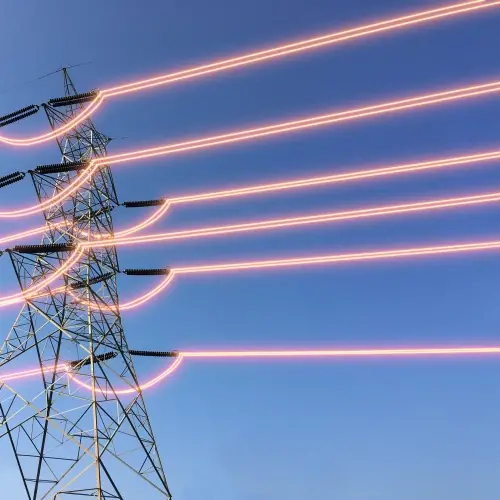
Electrical energy is the term used to describe energy transmitted by electricity or stored in electric fields.
Electric energy is one of the most sought-after types of goods. Like any product, electric energy has properties that characterize its ability to meet certain consumer requirements: the timeliness of the electricity supply, the required volume, the reliability of the electricity supply, and the quality of the electricity supplied.
Throughout history, the ways of obtaining electrical energy have been the main causes of climate change. However, today new, more sustainable generation systems are being developed.
Pros of electrical energy
Some of the main advantages of electrical energy over other energy sources are:
 Ease of transport: Electric energy can be transported over long distances quickly and efficiently through distribution networks, without generating direct emissions of polluting gases.
Ease of transport: Electric energy can be transported over long distances quickly and efficiently through distribution networks, without generating direct emissions of polluting gases.- Low noise: Electric devices, compared to combustion engines, produce less noise, making them more suitable for urban and indoor environments.
- No emissions at the point of use: It does not generate exhaust gases at the place where it is consumed, which contributes to better air quality in urban and closed areas.
- High versatility: It can be used in a wide variety of applications, from lighting to heating, cooling, transportation, and industrial production.
- Ease of conversion: It can be easily transformed into other types of energy, such as light, heat, mechanical, or chemical energy.
- Possibility of generation from renewable sources: Electricity can be generated from clean and sustainable sources such as solar, wind, hydraulic, geothermal, and biomass.
- Lower environmental impact (depending on the source): If it is obtained from renewable or nuclear energy, it can be generated with low CO₂ emissions or without greenhouse gases.
- Smart storage and management: It can be stored in batteries and used efficiently in combination with technologies such as smart grids.
- Automation and efficiency in industrial processes: Electricity enables the development of advanced technology, artificial intelligence, automation, and robotics, driving industrial efficiency and economic development.
- Boosting scientific and technological progress: Electricity is essential for research, computing, telecommunications, and innovation in all areas of knowledge.
Cons of electrical energy
Despite its many benefits, electric power also has some disadvantages:
 It is not a primary source of energy: It must be generated from other sources, which may be renewable or non-renewable. In many cases, electricity still depends on fossil fuels, which implies emissions of polluting gases.
It is not a primary source of energy: It must be generated from other sources, which may be renewable or non-renewable. In many cases, electricity still depends on fossil fuels, which implies emissions of polluting gases.- Energy losses in transportation and conversion: The generation, transmission, and distribution of electricity involve energy losses due to resistance in cables and conversion between different forms of energy.
- Dependence on complex infrastructure: A stable and reliable electricity grid is required, which requires high investments in generation, transmission, and distribution, as well as ongoing maintenance.
- Vulnerability to power outages and failures: Natural phenomena, network overload,s or cyber attacks can interrupt the electricity supply, affecting multiple sectors.
- Risk to human safety: Electric current can be dangerous for people if not handled correctly. A current greater than 50 mA is considered to be a lethal risk.
- Environmental impact of conventional generation: Although electricity itself does not generate emissions when used, if it is produced in thermal power plants based on coal, gas or oil, it contributes to climate change and pollution.
- Storage issues: Although batteries and storage systems exist, electricity cannot be stored efficiently on a large scale without significant costs.
- Dependence on natural materials and resources: The production of electrical equipment, batteries, and transmission networks requires minerals such as lithium, copper, and rare earths, the extraction of which can generate environmental and geopolitical impacts.
- High initial costs for renewable energy: Although they are cheaper to operate in the long term, installing renewable generation systems (solar panels, wind turbines) requires a considerable initial investment.
Is it possible to reduce the risk of electric shock?
This is possible if measures are taken to increase the resistance of the branch through which the current flows. Therefore, one of the ways to increase electrical safety when working with electrical installations is the use of dielectric mats, insulating supports, gloves, tools with insulating handles, etc.
Another way is to ground the elements of the equipment that a person can touch and that are not normally energized. In the presence of grounding, the human body turns out to be connected in parallel to the ground electrode, the resistance of which is many times lower than the resistance of the human body. Therefore, if the insulation breaks down and the voltage hits the equipment case, a small current will flow through the human body if it touches the case, which is safe for its health.
On the other hand, all active parts of machines and mechanisms must be protected by suitable covers.